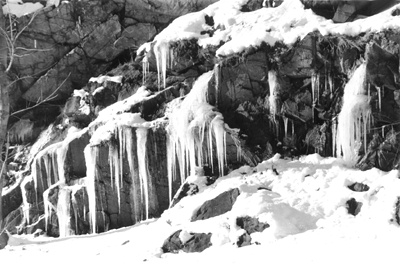All Nonfiction
- Bullying
- Books
- Academic
- Author Interviews
- Celebrity interviews
- College Articles
- College Essays
- Educator of the Year
- Heroes
- Interviews
- Memoir
- Personal Experience
- Sports
- Travel & Culture
All Opinions
- Bullying
- Current Events / Politics
- Discrimination
- Drugs / Alcohol / Smoking
- Entertainment / Celebrities
- Environment
- Love / Relationships
- Movies / Music / TV
- Pop Culture / Trends
- School / College
- Social Issues / Civics
- Spirituality / Religion
- Sports / Hobbies
All Hot Topics
- Bullying
- Community Service
- Environment
- Health
- Letters to the Editor
- Pride & Prejudice
- What Matters
- Back
Summer Guide
- Program Links
- Program Reviews
- Back
College Guide
- College Links
- College Reviews
- College Essays
- College Articles
- Back
Global Warming
The theory of global warming states human activities have caused significant increase in the earth’s temperature over a short amount of time (Strickland Grabianowski 1).While the official definition only states that global warming is the increase in temperature of the earth’s surface, many definitions state it is caused by greenhouse gases. Greenhouse gases are gases naturally found in the earth’s atmosphere such as carbon dioxide, methane, nitrous oxide and more. In the theory, carbon dioxide is the leading contributor to the increase in temperature. The theory neglects to tell you that carbon dioxide is a part of everyday life and 93% of all carbon is found in oceans (R. Adam par 2). While humans slightly increase the natural process of global warming, they are not the direct cause of it and therefore should not do anything to prevent it.
The natural process of global warming occurs when the greenhouse gases trap unnecessary energy in the earth’s atmosphere. The unnecessary energy causes the earth’s temperature to rise and creates a warming effect (Strickland Grabianowski 1). People who believe in the theory of global warming also say since the Industrial Revolution humans have increased the amount of carbon dioxide in the in the air, which is true but the Oregon Institute of Science and Medicine had more than 170,000 scientists sign a petition saying “there is no convincing scientific evidence that human release of carbon dioxide, methane, or other greenhouse gases is causing or will, in the foreseeable future, cause catastrophic heating of the Earth’s atmosphere and disruption of the Earth’s climate.” (“Arguments Against Global” par 1).
Many scientists believe data has been collected over too short a period of time to really judge whether humans are having a direct effect on the natural process or not. People that agree with the theory of global warming say eleven out of twelve of the previous years have been ranked the highest since 1850 (Strickland Grabianowski 2). They overlook studies that show the Earth’s temperature has naturally fluctuated over a greater scale of time. For example during the years 800 AD to 1200 AD, also known as the medieval warm period, temperatures were higher than the Intergovernmental Panel on Climate Change’s worst case scenario for the Earth today. This period allowed Vikings to travel to Greenland which was uninhabitable at the time. Again in the years 5000-3000 BC, also known as the climatic optimum, when temperatures were again higher than normal, humans started building their own civilizations (“Arguments Against Global” par 5). These examples show how the Earth naturally warms for brief periods of time. They also show how humans have benefitted both times.
Since the idea of global warming emerged, there have been many efforts to stop it. These methods have been overall costly and unsuccessful. The American Policy Roundtable says, “ Reducing U.S. carbon dioxide emissions to 7 percent below 1990’s levels by the year 2012—the target set by the Kyoto Protocol—would require higher energy taxes and regulations causing the nation to lose 2.4 million jobs and $300 billion in annual economic output.” The Roundtable also says the average household income would decrease by 2,700 dollars and state tax revenues would be reduced by 93.1 billion dollars. By following the Kyoto Protocol the global temperature would be reduced only 0.14 degrees Celsius by the year 2100 (“Arguments Against Global” par 6). This means that while trying to prevent a natural cycle from happening, we would impair the lives of everyday citizens and barely have a counter effect on the process.
The natural process of global warming is not directly caused by humans. While humans may slightly speed up the process, it is a natural cycle. Humans should not do anything about it because attempts to slow the cycle have not helped. Humans should just let nature run its course, as it seems to have happened before on a larger scale. Overall, humans may slightly affect the pace of global warming; it is by no means a threat to the population. In addition, we should not do anything about it as the methods for reducing its effects are costly and ineffective.

Similar Articles
JOIN THE DISCUSSION
This article has 0 comments.
